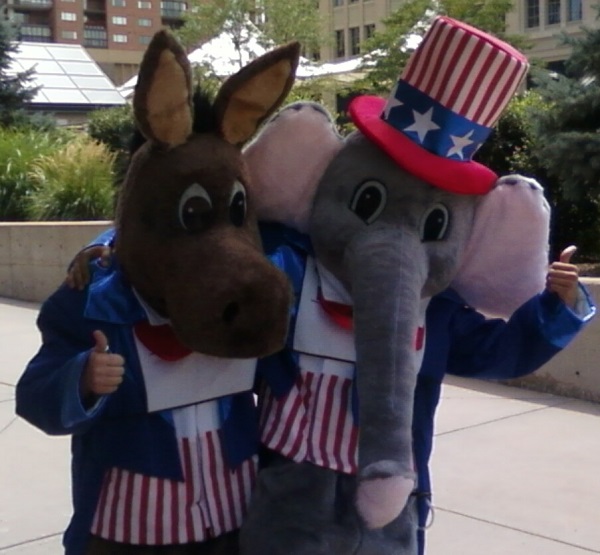We must listen to those we disagree with
3 min read
by Marty Wilde
Democracy is a collaborative endeavor. Decisions made democratically should reflect the will of the majority; however, the process by which we reach those decisions must include those who disagree. A fair process results in a more nuanced and thoughtful result, one that accounts for differences of opinion. Furthermore, the perception of a fair process helps increase acceptance of that result.
Unfortunately, much of our modern information environment works against a process that includes give and take.
As a high school student living near Washington DC in the early 1990s, I remember one distressing sign of these times. The politicians in my inside-the-beltway neighborhood stopped socializing with their families across party lines, and eventually moved their families back to their home states. Now, anyone from outside of the DC area who wants to work in government has to commit to lengthy absences from their family. Opportunities to build relationships across party lines and learn to understand one another are rare and usually formal. For too many politicians, members of the other party are not the worthy opposition, but the enemy.
When I started my service in the Oregon House, I hoped I was entering a forum of reasoned discussion and compromise. In fact, the structure and traditions of the institution actively prevent that. The practices of the legislature do not allow for the thoughtful public interactions between opposing viewpoints that can lead to compromise and stronger legislation. This lack of give-and-take also deprives the voters of the chance to see collaborative governance, which increases resentment of new legislation.
The echo chamber of modern media disincentivizes collaboration. I feel sorry for my Republican colleagues in some respects. If I vote contrary to the recommendations of stakeholders in the majority, I may lose their financial support or have to explain my vote later. For members of the other party, failure to toe the party line means getting castigated on the Lars Larson Show the next day and upping the odds of a primary challenge.
As a society, we seem to have forgotten the distinction between reliable political information and the kind of entertainment provided by Mr. Larson and others. The most aggressive voices in our political discourse are amplified in social media; productive civil discourse is seldom reported. For example, the bipartisan bill Rep. Hayden and I passed in early 2022 to provide dental care to veterans should have been big news. Instead, our statewide media led with stories of division and anger. For the media of all types, if it bleeds, it leads.
These failures to communicate weaken our democracy. Our modern world sometimes requires quick responses to events. When speed is essential, we can respond quickly if we have the sturdy foundation of ongoing positive engagement across political lines—the relationships among leaders that help us work efficiently and collaboratively, and the sense of trust that each party will act in the best interests of our country as a whole when time does not permit extended deliberation. The sad result of this failure to collaborate is a United States that is often seen by our allies as unreliable and lacking the clear moral purpose that helps us lead internationally.
As the poem says, “…’tis not too late to seek a newer world.” That search doesn’t start with constitutional amendments or legislative chamber rule changes, but rather with individual resolutions to listen to other voices, whether or not we initially agree with them. I’m generally viewed as an environmentalist, but I made an effort to take every tour that resource industries offered. I listened for good ideas and compelling interests that could be accommodated within a larger pro-environmental framework.
We must listen to those we disagree with, if we hope to make progress. It may be true that everyone does not deserve equal attention—some reject the very premise of collaborative democracy. I practice “selective attention,” seeking out the reasonable voices and avoiding those who characterize people with different opinions as foolish or evil. If we learn to listen and discuss, we can build that newer world together.
Marty Wilde represents Oregon House District 11. He is a candidate for the Lane County Circuit Court. Contact him by email at wildefororegon@gmail.com.






